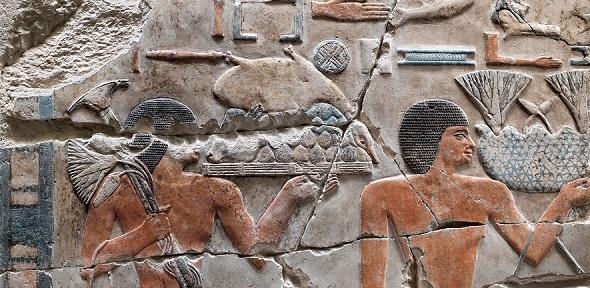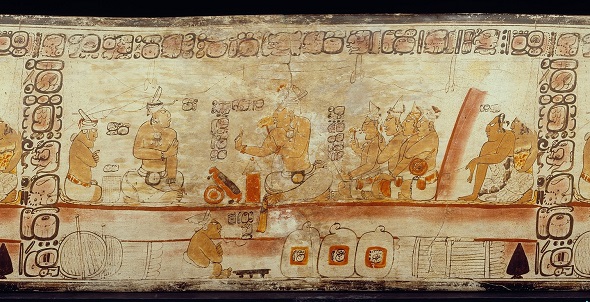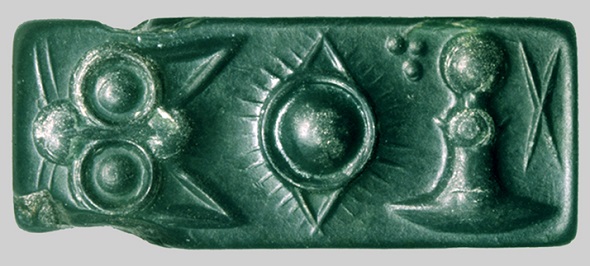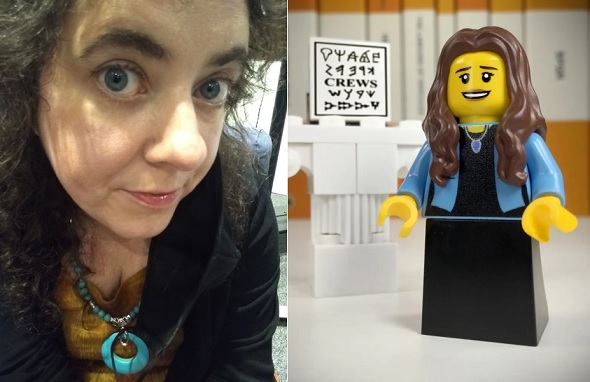
Submitted by A.J. Holroyd on Wed, 16/03/2022 - 12:38
Philippa Steele, Senior Research Associate at the Faculty of Classics, University of Cambridge, has been awarded a grant of 2 million euros by the European Research Council (ERC) to investigate the visual properties of pre-modern writing. The five-year project, Visual Interactions in Early Writing Systems (VIEWS), will employ a research team working on writing systems from Linear A and B and cuneiform to Egyptian hieroglyphs and even Mayan.
Writing is, and always has been, a highly visual and visible phenomenon. Traditional ways of classifying writing systems have concentrated on their linguistic properties, such as whether they have separate signs for individual sounds or for whole words or syllables – but these approaches have tended to overlook similarities and differences in their visual properties. For example, the linguistically very different types of system employed in ancient Egyptian hieroglyphs and Mayan writing share some striking visual features, such as their highly decorative and often monumental contexts and the use of signs as visual complements to make meaning clearer. Meanwhile, closely related systems like Cretan Hieroglyphic and Linear A and B can employ strikingly different features in the way they lay out text and employ logographic signs that are visual depictions of what they represent.
Rollout image of a Mayan drinking cup. Image credit: Dumbarton Oaks Research Library and Collection, Harvard University.
Through new research on five specific pre-modern case studies, VIEWS takes writing systems research in a new direction. It probes important questions, such as the relationship between writing and visual culture, and the ways in which people encounter and interact dynamically with writing. It asks how we might reach a more nuanced understanding of writing systems if we were to categorise them by their visual properties, and investigate the ways in which visual and linguistic features interact. It seeks to establish innovative, interdisciplinary research methods, bringing archaeological, cognitive, linguistic, social-anthropological and visual-cultural approaches into dialogue with each other in order to pursue a more holistic picture of writing as a cultural phenomenon and practice.
Cretan Hieroglyphic seal with cat face sign. Image by Ingo Pini. Public domain image from Wikipedia.
The VIEWS project also pushes the boundaries of the Classical world, bringing the writing of the Greeks and Romans into conversation with writing in western Asia, northern Africa and even the Americas – as well as looking at wider east Asian, African and Pacific parallels. One of the most exciting aspects of the research is its relevance to the modern day, where many minority writing systems around the world are under threat. A better appreciation of the wider visual-cultural context of pre-modern ‘dead’ writing systems has a powerful potential to help us understand how they lost their vitality, giving important clues as to how we might help to revitalise endangered writing systems in the modern world.
Dr Philippa (Pippa) Steele and her Lego figure by the group Lego Classicists.
Cambridge researchers awarded European Council Research funding



